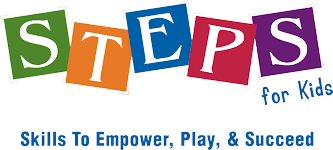Taking time to sit and read with your child is highly recommended by all the current research. Reading to your child improves cognitive and language skills while also strengthening social, emotional and character development.
Children also learn from watching, listening and engaging with others throughout the day. Scheduling time to read and engage with your child is crucial, but don’t miss out on these easy ways to support your child’s learning and language skills during everyday activities. Research shows that simply talking and listening to your child is vital to development of language and cognitive skills.
Incorporating these strategies takes a bit of focused effort at first, but with time you’ll discover it’s easy to take advantage of these “teachable moments” and notice your child’s language improving as well as your relationship!
- MEAL TIME: Have your child in the room with you while you are preparing meals so they can watch and participate in the activities. Use this time for conversation and focused language practice: .
- RECEPTIVE LANGUAGE ACTIVITIES: Depending on your child’s age and ability level, they can work on following directions when you ask them to get out certain items (for example: “get out your green cup”, “put the napkin on the table”) or you can give 2-step directions such as “get the green cup and put it on the table”. If your child is younger, you can hand him/her the napkin and help them put it on the table while you are telling them the directions.
- VOCABULARY ACTIVITIES: While you are working in the kitchen and preparing meals, talk to your child as much as you can. Explain what you are doing, label the items/foods/actions you are doing while you are doing them, talk about colors and sizes of things you are using, and work on sequencing by talking through the steps you are taking to prepare the meal.
- EXPRESSIVE LANGUAGE ACTIVITIES: Ask your child questions while you are working in the kitchen. You can ask him/her to label items, ask him/her to tell you where things go, given him/her an object and have him/her tell you about it (size, color, etc), or ask your child to tell you what you are doing as you do things (washing, cutting, cooking, etc).
2. BATH TIME: This is another great time to get some language and conversation going with your child. As with the meal time ideas, you can work on vocabulary by labeling objects, actions and the steps to getting bathed (before, during and after). You can ask questions to work on that expressive language at whatever stage your child is at (labeling, combining 2-3 words, producing sentences). Receptive language can be addressed by asking your child to point to body parts, follow 1-2 step directions (ie., give me the blue toy, put the toy in the cup and give it to me, etc), or asking your child questions about what you are doing. This is also a great time to sing songs and have your child help you by filling in the words/phrases he/she knows in the songs.
3. MORNING AND NIGHTTIME ROUTINES: These routines are a great source of language and interactions for you and your child. This is another time where you can work on vocabulary related to the routine, sequencing the steps you take to get ready, asking who/where/when questions about the routine and objects involved (“Where do you keep your toothbrush?”, “Who should brush their teeth first?”, “When do we put on our pajamas?”) or asking your child about their day. Encourage expression by asking for specifics such as “Tell me something you had fun doing today” instead of asking “what did you do today?” Remember that listening to your child is as important as speaking to your child!
Sometimes as parents we get caught up in “getting through” the daily routines and all of the things we have to do that we forget that these are opportunities for quality time with our children. We can make these times more enjoyable for ourselves as parents and help our children develop many skills as they participate in or watch the routines we go through during our day. Be creative, have fun and enjoy your time with your child as they learn and communicate with you! ~ Tammy Masciola, MA, CCC-SLP/L

